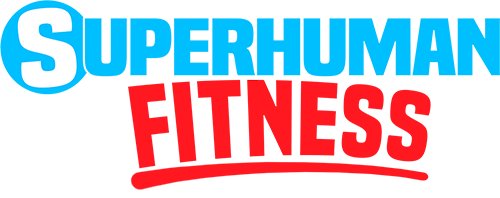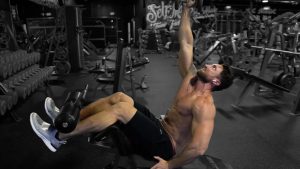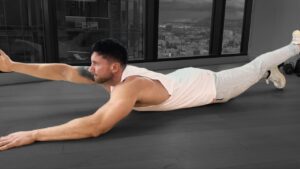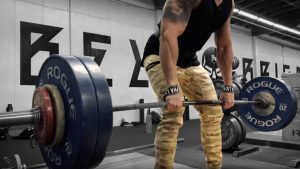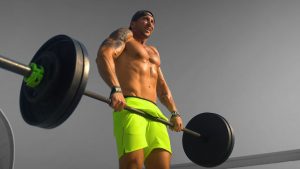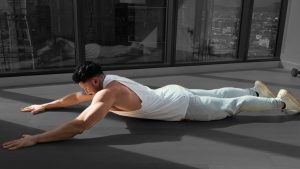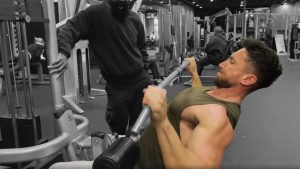If you are looking to bulk up your legs, then it's high time that you add calf raises to your leg workout routine. Calf raises are a great way to add resistance for better muscle growth, giving you stronger and more stable calves. One variation you should definitely add to your workout routine is the donkey calf raises.
It was popularized by none other than Arnold Schwarzenegger as the perfect bit to activate your lower body muscles. Unlike seated and standing calf exercises, donkey calf raises will work your calves from several different angles.
Read on to see how you can take your calf training game to the next level!
How To Execute Donkey Calf Raises
Since it is a simple exercise, you can perform this with the most minimal equipment. Your gym should have a calf raise machine.
Let's take a look at the step-by-step execution of the donkey calf raise exercise:
- 1Position yourself under the pads of the calf raise machine, with the pads adjusted to the correct height.
- 2Make sure to bend at the waist forward, with your hips and lower back positioned right underneath the pads.
- 3Step onto the edge of the platform with just your toes, and your heels hanging.
- 4Let the heels go down slowly, stretching the calves.
- 5Lift your toes up, contracting the calves hard until you reach peak contraction at the top.
- 6Hold the peak flexion at the top for a moment.
- 7Slowly return your heels down.
- 8Repeat the movement pattern.
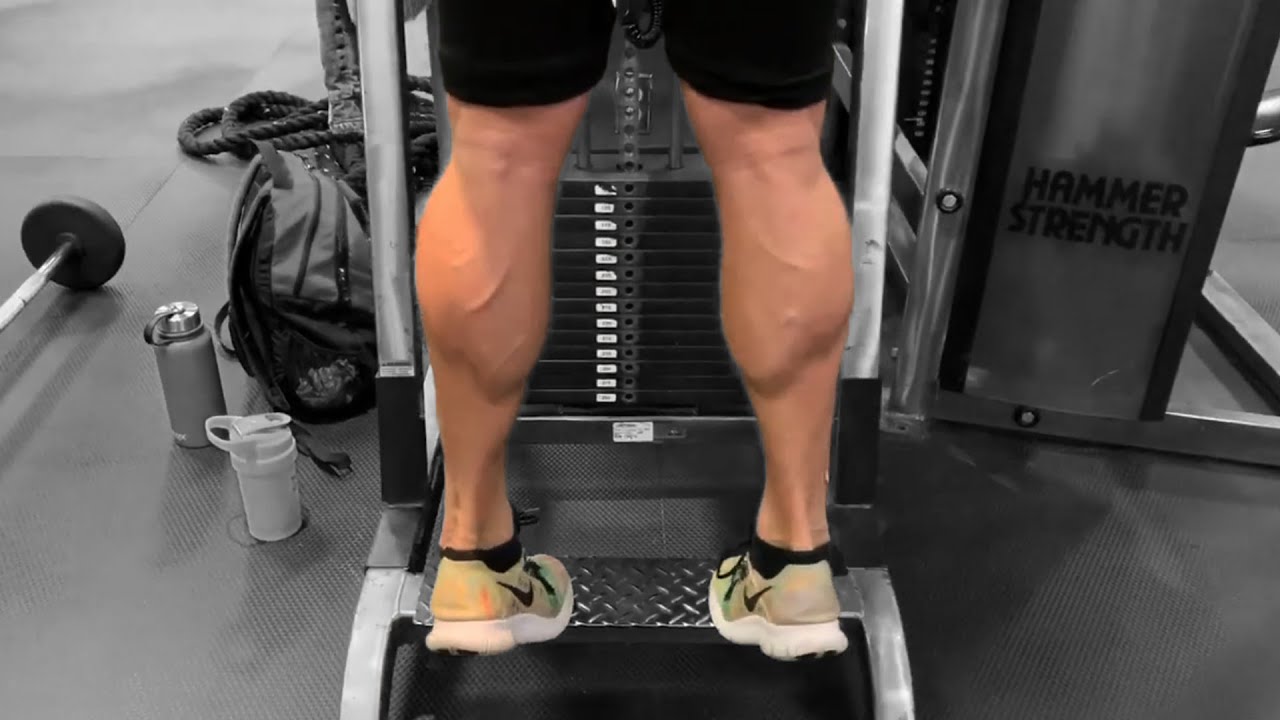
To really work the calves to their full capacity, you should aim to do multiple sets of donkey calf raises. Not to worry, your lower leg muscles are designed to handle it!
You should perform 7-10 reps with your feet in a parallel position, 7-10 reps with the feet turned out, and 7-10 reps with feet turned in. You can also do time under tension training if you cannot set aside enough time for this rep range.
With time under tension, you can just do sets of 30 seconds for each position and rest briefly between each set.
Target Muscles Worked By Donkey Calf Raises
As you already know, donkey calf raises focus on exercising your calves muscles from a stretched position. Let's see exactly which muscles are worked here.
Primary Target Muscles
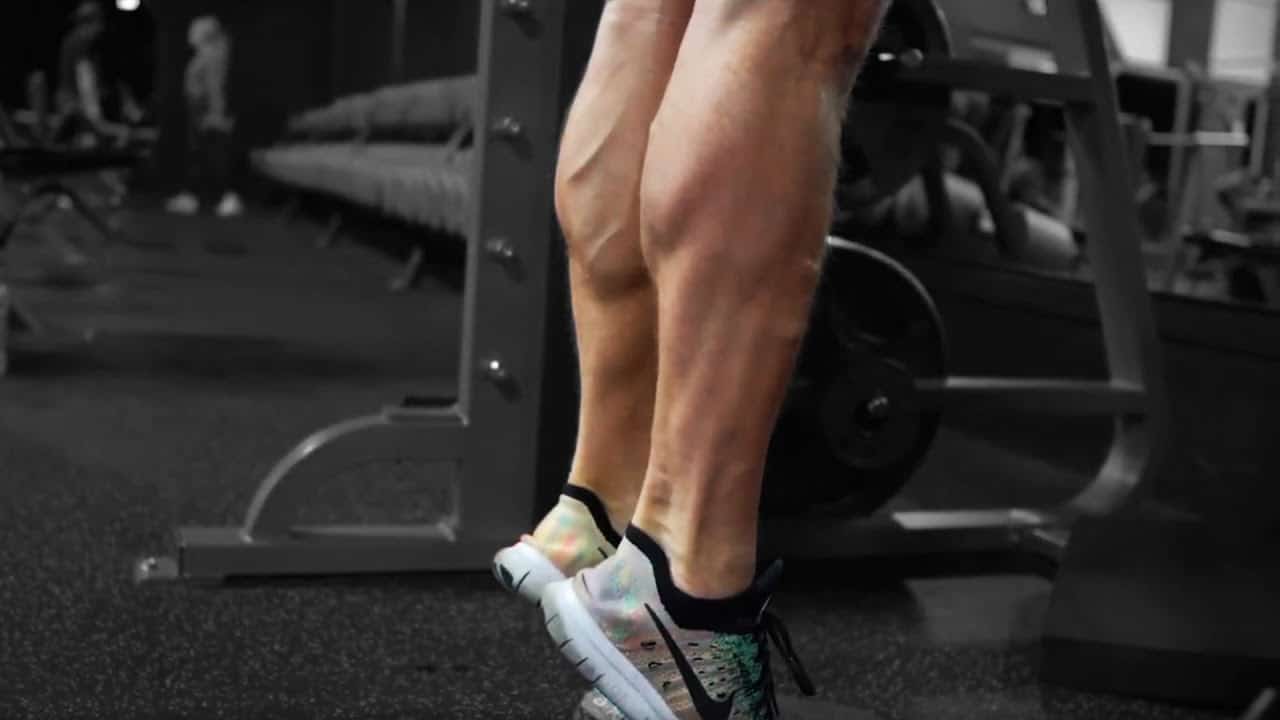
The primary muscle groups it targets are the gastrocnemius and the soleus. The gastrocnemius comprises two heads that cross at the knee joint, allowing you to bend your knees forward. When well-developed, the gastrocnemius is clearly visible, taking up a bulk of your calf.
The soleus is the muscle right below the gastrocnemius. Its sole function is to flex your foot downward.
The soleus and gastrocnemius also work together to pull the heels upward by supporting the Achilles tendon. So these calf muscles are needed for activities like running, jogging, or even something as basic as walking!
Secondary Target Muscles
Donkey calf raises do not just target your calves but also your hamstrings and abs in the mid-section of your body. Both receive a stretch when you fold your upper body forward.
Tips For Maintaining Correct Form For Donkey Calf Raises
Here are some tips that'll help you perform the donkey calf raise exercise like a pro!
Engage Full Range Of Motion
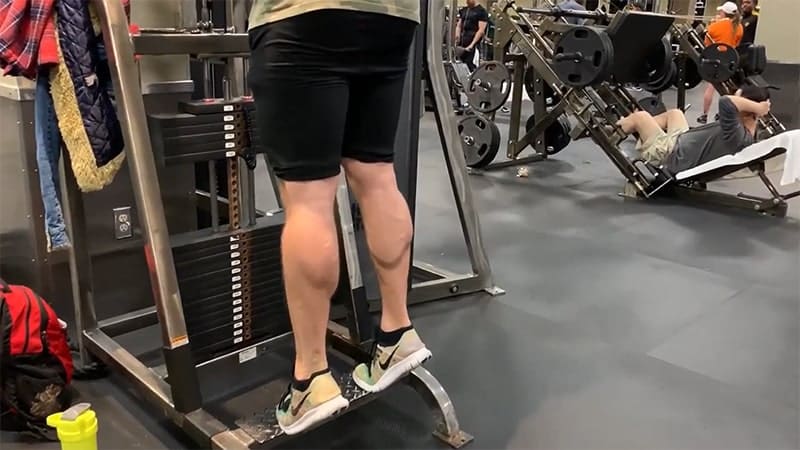
One common mistake beginners do is cutting their leg motion off too quickly. What happens here is that they perform donkey calf raises by going up and down on their toes in a pulsing motion. That's a big no-no! This kind of motion only counts as doing half the exercise, defeating the purpose of this lower leg exercising technique.
So make sure to use the full range of motion. Slowly raise the calves until you are all the way up on your toes. Squeeze the calves at the top. Then drop your heels down, carefully contracting your calves to move on to the next rep.
Avoid Standing In An Absolute Upright Position
Although most exercises tell you to keep your back straight, this is one such exercise where you want to avoid doing that. That's because standing too upright will reduce the stretch needed to build more calf gains.
When you bend down at the waist, make sure the back is nearly but not completely parallel to the ground. This way, you will get to feel some stretch in your calf muscles.
Variations Of Donkey Calf Raise
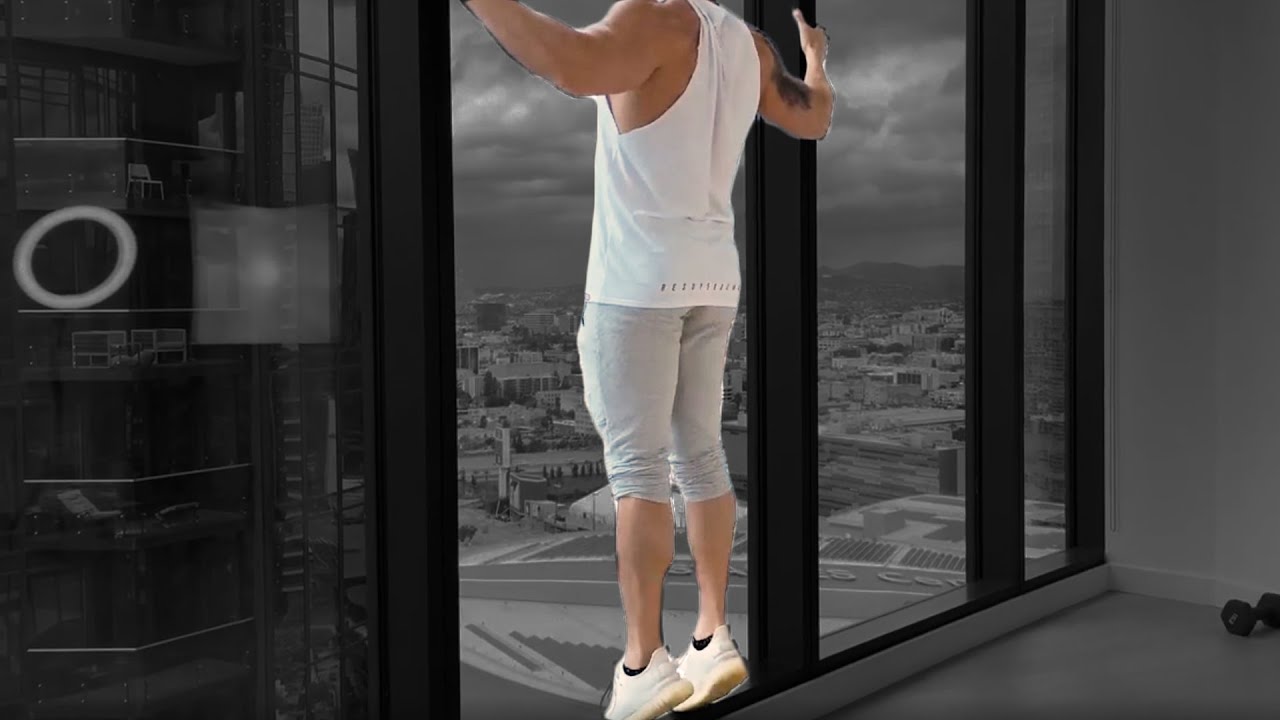
These instructions particularly apply to when you are doing donkey calf raises with the calf raise machine. In case you do not have access to one, try doing calf raises at home with a step platform or any other stable object like a railing or chair.
You can get creative with your setup to add resistance for increased muscle size. For instance, performing it with one leg at a time instead of exercising both legs together or adding weights!
Let's take a look at some of the popular variations.
Donkey Calf Raise With Dip Belt
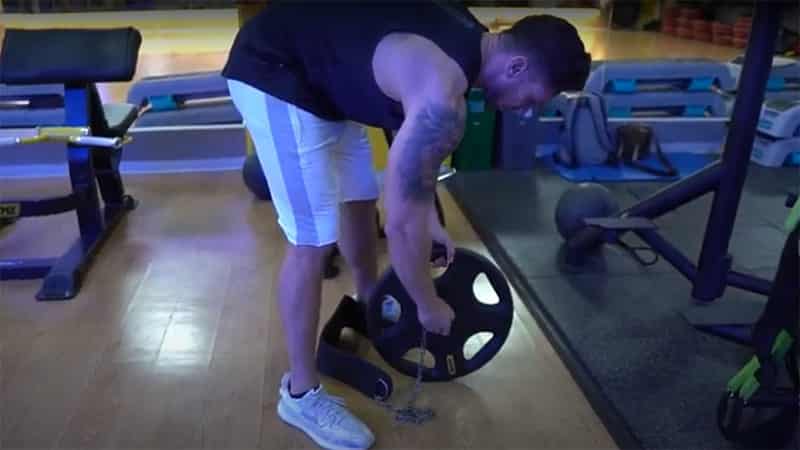
For this variation, you will want to use a weight belt to add more resistance to the calf raise.
- 1Tie a weight belt around your waist.
- 2Place your hands on a chair or railing to support your weight.
- 3Then follow the same instructions as the donkey calf raise with the machine and repeat.
- 4Remember to hold for a second, squeezing your calf muscle hard when you are at the top.
Donkey Calf Raise With Flat Or Incline Bench
You can even do this exercise without the heavy calf raise machine. All you really need is a flat or inclined bench at waist height and a step block.
- 1Place the step block in front of the bench.
- 2Step onto the edge of the block with your toes and hold on to the bench.
- 3Then follow the same instructions as before and repeat.
Wrap Up
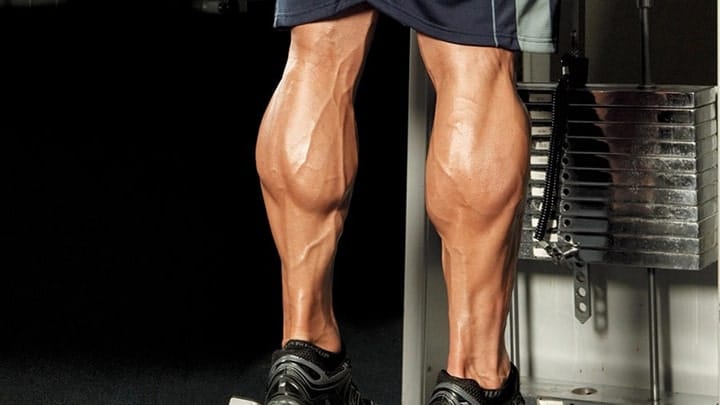
Calves are easy to take for granted since it is hard to build them. That does not mean it is an impossible task; it just means you need to find the right way to approach these stubborn muscles. Donkey calf raises offer a simple yet effective way to optimize your lower body workout.
The key thing to keep in mind is that you cannot do this half-heartedly if you want to see big results. This means eating right and progressing to more challenging donkey calf raises like those involving weight belts.
Now that you have all the information, time to jump right into action mode!
